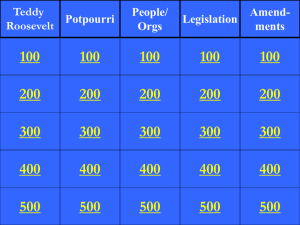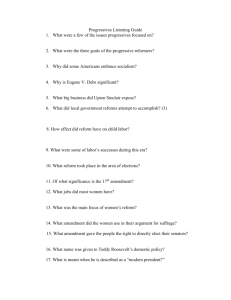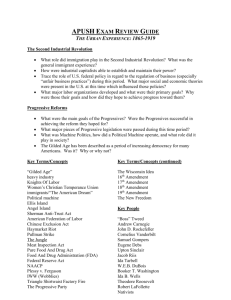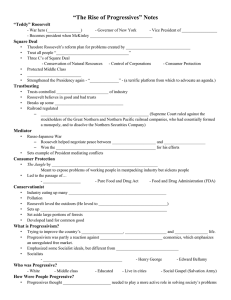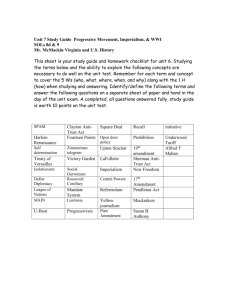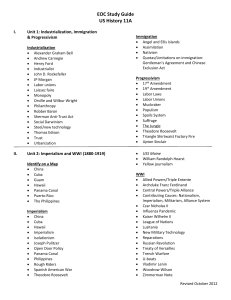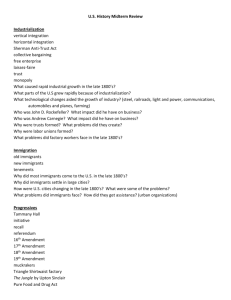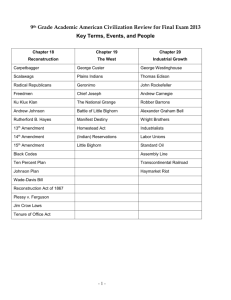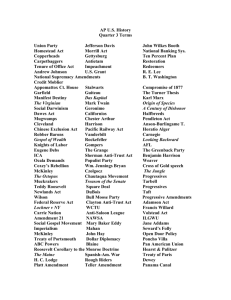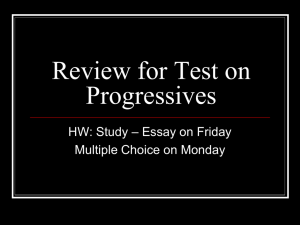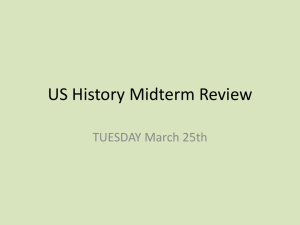Progressives Study Guide Chapter 17 Define and explain the
advertisement
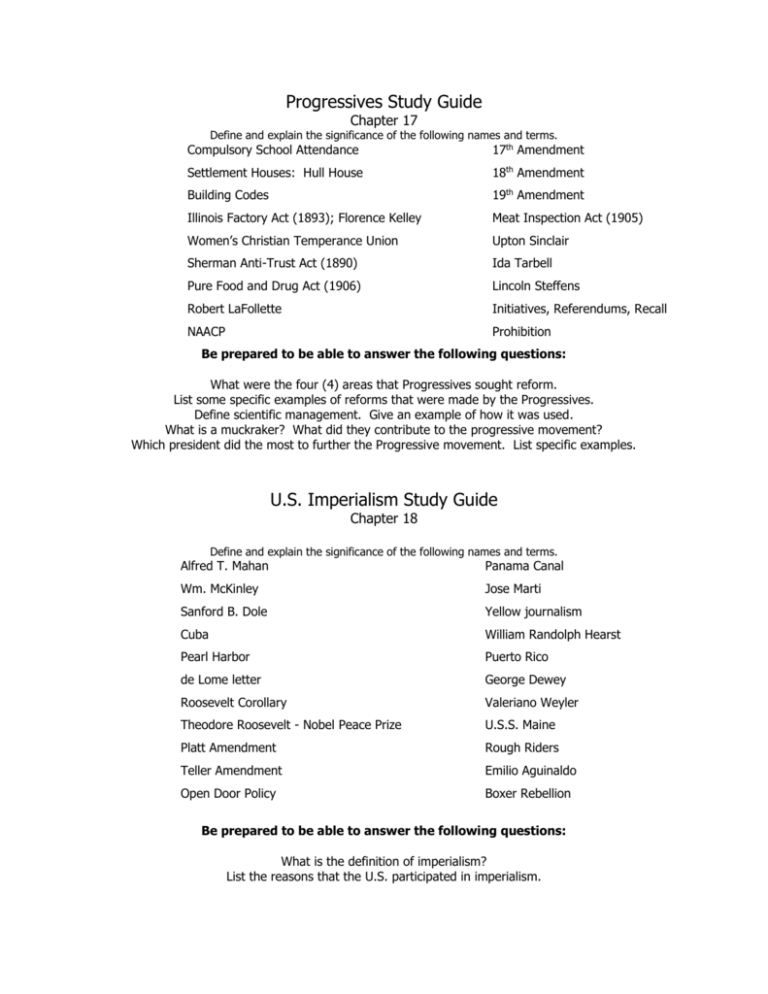
Progressives Study Guide Chapter 17 Define and explain the significance of the following names and terms. Compulsory School Attendance 17th Amendment Settlement Houses: Hull House 18th Amendment Building Codes 19th Amendment Illinois Factory Act (1893); Florence Kelley Meat Inspection Act (1905) Women’s Christian Temperance Union Upton Sinclair Sherman Anti-Trust Act (1890) Ida Tarbell Pure Food and Drug Act (1906) Lincoln Steffens Robert LaFollette Initiatives, Referendums, Recall NAACP Prohibition Be prepared to be able to answer the following questions: What were the four (4) areas that Progressives sought reform. List some specific examples of reforms that were made by the Progressives. Define scientific management. Give an example of how it was used. What is a muckraker? What did they contribute to the progressive movement? Which president did the most to further the Progressive movement. List specific examples. U.S. Imperialism Study Guide Chapter 18 Define and explain the significance of the following names and terms. Alfred T. Mahan Panama Canal Wm. McKinley Jose Marti Sanford B. Dole Yellow journalism Cuba William Randolph Hearst Pearl Harbor Puerto Rico de Lome letter George Dewey Roosevelt Corollary Valeriano Weyler Theodore Roosevelt - Nobel Peace Prize U.S.S. Maine Platt Amendment Rough Riders Teller Amendment Emilio Aguinaldo Open Door Policy Boxer Rebellion Be prepared to be able to answer the following questions: What is the definition of imperialism? List the reasons that the U.S. participated in imperialism. Identify the people, ideas or events that helped to ignite the Spanish-American War. Explain the role they played. Explain the reasoning behind John Hay’s Open Door Policy. What is the Roosevelt Corollary? Define the Foraker Act. Which country did it pertain to? What did the U.S. gain from the Treaty of Paris? Define the Platt Amendment
